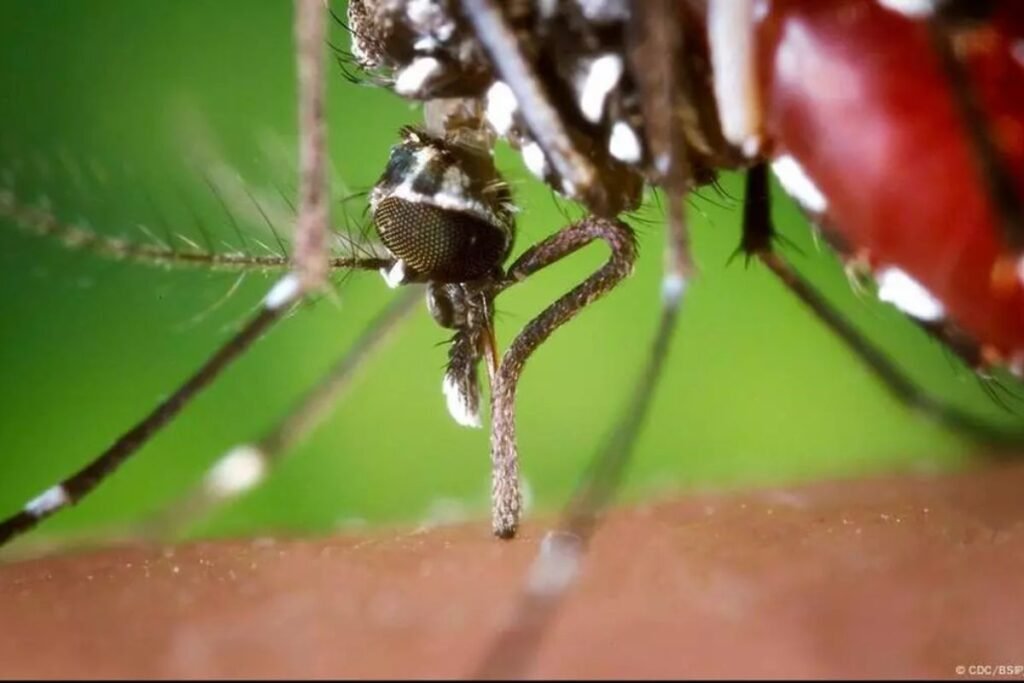(Source-frontline.thehindu.com)
August 20, 2024, marks the 127th anniversary of British physician Ronald Ross’s groundbreaking discovery of mosquitoes as the transmitters of malaria. His pivotal work, which earned him the Nobel Prize in Medicine, significantly advanced global awareness of mosquito-borne diseases and their risks. This date is now commemorated annually as World Mosquito Day.
A Global Health Challenge
Mosquito-borne diseases have since been identified on every continent except Antarctica. These diseases share common symptoms, such as fever, headaches, fatigue, and joint or muscle pain. Accurate diagnosis often depends on a careful evaluation of these symptoms along with other specific indicators.
Despite the development of some antiviral medications and vaccines, effective treatments for many mosquito-borne diseases remain limited. Prevention continues to be the most effective strategy. Recommended measures include using mosquito nets, wearing protective clothing, applying insect repellent, and eliminating stagnant water sources to reduce mosquito breeding.
Malaria: The ‘Original’ Infection
Malaria, caused by single-celled parasites from the Plasmodium genus, was the first mosquito-borne diseases to be linked to these insects. In 2022, there were over 249 million malaria cases globally, an increase of five million from the previous year and nearly 20 million above the 2015 baseline. Sub-Saharan Africa accounts for nearly 95% of all malaria cases, and the disease remains a leading cause of child mortality worldwide.
The Anopheles mosquito, specifically the female of this genus, is responsible for transmitting malaria. The infection is characterized by fever episodes, headaches, limb pain, sweating, chills, and diarrhea. Without treatment, malaria can lead to severe complications, including significant damage to the nervous system.
Recent advancements include the introduction of vaccines like Mosquirix and anti-malarial drugs that can help reduce the risk of infection. However, the disease continues to pose a major public health challenge, especially in high-risk regions.
Other Notable Mosquito-Borne Diseases
Beyond malaria, several other mosquito-borne diseases present serious health risks:
- Dengue Fever: Caused by the dengue virus and transmitted by Aedes mosquitoes, dengue fever is prevalent in tropical and subtropical regions. Symptoms include high fever, severe headache, pain behind the eyes, joint and muscle pain, rash, and mild bleeding. In severe cases, dengue can progress to dengue hemorrhagic fever or dengue shock syndrome, which can be life-threatening.
- Zika Virus: Also transmitted by Aedes mosquitoes, Zika virus is known for causing birth defects when pregnant women are infected. The virus can lead to symptoms like fever, rash, joint pain, and conjunctivitis. The primary concern with Zika is its potential to cause microcephaly and other severe brain defects in newborns.
- Chikungunya: Spread by Aedes mosquitoes, chikungunya virus causes symptoms similar to dengue, including high fever and severe joint pain. Although not usually fatal, the joint pain can persist for months or even years, affecting the quality of life for many patients.
- West Nile Virus: Transmitted by Culex mosquitoes, West Nile virus can cause flu-like symptoms and, in severe cases, neurological diseases such as encephalitis or meningitis. Most people infected with the virus experience mild symptoms or none at all.
Prevention and Control
While vaccines and treatments for some mosquito-borne diseases are under development, prevention remains crucial. Effective measures include using mosquito nets, applying repellent, wearing long-sleeved clothing, and eliminating standing water where mosquitoes breed.
The fight against mosquito-borne diseases continues to be a global health priority. Ongoing research, vaccination programs, and community efforts are essential to reduce the burden of these dangerous infections and protect public health worldwide.









